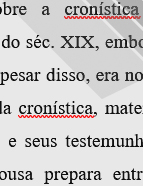

................................
However, it was Herculano's stance that had the most significant influence on the direction of chronicle production studies from then until the mid-20th century. Between 1853 and 1854, Herculano inventoried the main collections of documents of the Centre and North of Portugal, and in 1857 he included part of them in the Torre do Tombo archives. It was through this contact with a vast number of sources that the intention was formulated to embark on an edition of Portuguese medieval sources, much like the collections produced throughout Europe since the beginning of the previous century and, in some cases, dating back to the late 17th century. As had been done in the Monumenta Germaniae Historica (in publication since 1819), with which Herculano was familiar, he divided the headings into Scriptores, Leges and Diplomata, setting aside the Epistolae and Antiquitates. In any case, his express intention was to "facilitate scholars' almost immediate access to historical sources" (Idem, p. xxi), as stated in the first volume of Portugaliae, published in 1856. Disseminating the texts of medieval chroniclers was his way of overcoming the ignorance of history, and through it the decline of social bodies, stated in other parts of his work. With this set of publications, whose first three Scriptores issues were exclusively dedicated to a collection of chronicles produced in Portugal, Herculano signalled a real turning point in the publication and criticism of texts. The editorial criteria were broadly in line with those of the German Monumenta, both in terms of the reference to previous editions and in the exact transcription of the manuscripts (except for the introduction of punctuation), and in the cases where the supposed original had been lost, in the annotation of variations and in the comparison of the interpretations of the apographs.
During the following decades of the Constitutional Monarchy, Herculano's interpretations were the only editions of much of the chronicle production prior to Fernão Lopes and, to a certain extent, the historiographical line on chronicle production that prevailed until the appearance of Lindley Cintra on the scene in the mid-20th century. Herculano’s views on the dating and authorship of texts were also considered decisive.
